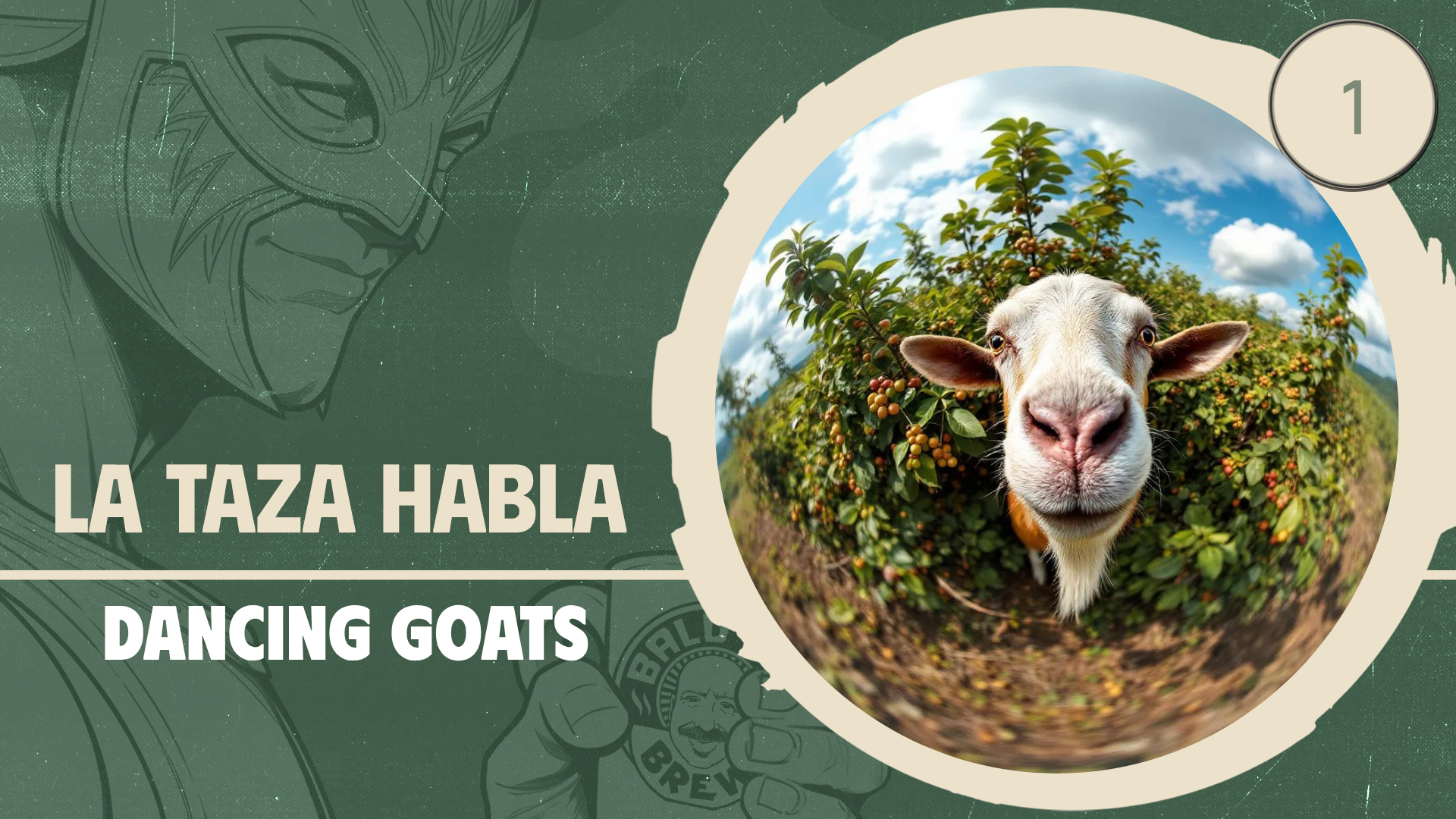Goats, Rituals, and Legacy: How Ethiopia changed the world!
Posted on May 02 2025,

Join your host, Don Cox (The Bald Guy), on a deep dive into the legendary and spiritual origin of coffee—Ethiopia, the true birthplace of the Coffea Arabica species. This episode moves beyond the daily coffee ritual to explore the foundation of the specialty coffee world. We start in the Kaffa region with the famous Legend of Kaldi, the goat herder whose unusually energetic, dancing goats led him to the stimulating bright red coffee cherries. More than just a charming tale, Ethiopia holds an unmatched genetic pool of wild Arabica coffee varieties, creating flavor profiles you won't find anywhere else.
Discover how coffee was consumed for centuries before it was brewed—from energy balls mixed with ghee to fermented wine. The true heart of this journey is the Ethiopian Coffee Ceremony (Jabena Buna). This unhurried, multi-sensory process—involving the symbolic washing, the public smelling of the fresh coffee roasting, and the final three-cup service (Abel, Tona, Baraka) in the beautiful jabena clay pot—is a powerful tradition of hospitality and community. Learn why adding a pinch of salt or butter to your cup is actually a nod to ancient traditions, and how this simple beverage continues to bridge divides across cultures and religions. Slow down, be present, and let the 20 years of expertise from La Taza Habla change the way you see your morning brew.
Key Takeaways
-
Arabica’s Wild Home: The species of coffee we overwhelmingly consume, Coffea Arabica, originates and still grows wild in Ethiopia, which is why the country boasts a vast, unmatched genetic diversity, producing incredibly unique flavors.
-
Brewing Was an Accident: Coffee was originally consumed by Ethiopians in the form of whole beans (chewed) or mixed with animal fat (ghee) and rolled into energy balls for sustenance, centuries before the stimulating drink we know was discovered.
-
The Jabena Buna is a Spiritual Experience: The Ethiopian Coffee Ceremony is a three-hour ritual of unhurried hospitality, led by a young woman or matriarch, using the distinctive jabena clay pot. It involves washing, roasting (and smelling!), hand-grinding, and serving three rounds: Abel (strongest), Tona (lighter), and Baraka (the blessing).
-
A Ceremony of Respect: Refusing to smell the beans when passed around by the host is considered impolite, demonstrating the deep cultural importance of the ritual's sensory elements. The youngest child serves the oldest guest first, a physical manifestation of respect.
-
Ancient Additions: If you enjoy cream, sugar, salt, or butter in your coffee, you are connecting with coffee's oldest traditions! Early consumption often mixed coffee with ghee or honey to balance the natural bitterness.

